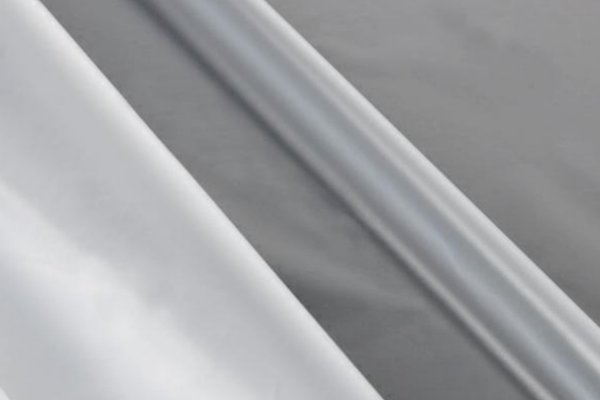Every industry has its terminology, and the hot melt industry is no exception. For many people who have not been in contact with the hot melt adhesive industry, it is not easy to understand when you hear some proper nouns for the first time. Here is a list of some common hot melt adhesive industry nouns.
Hot melt glue: in the melted state of coating, after cooling that cured a polymer-based thermoplastic adhesive.
Pressure-sensitive adhesive: that is, self-adhesive, the surface is sticky at room temperature can be bonded to the substrate under pressure.
Polymers: such as rubber, plastic, fiber, and other substances with a long chain molecular structure composed of repeating units, also become polymeric materials.

EVA: ethylene-vinyl acetate copolymer. It can be used as the basic polymer of hot melt adhesive and is widely used in the manufacture of hot melt adhesive.
TPU: Thermoplastic polyurethane. Polyester type and polyether type can be used as the basic polymer for manufacturing hot melt adhesives.
PA: Polyamide, commonly known as nylon. It is a general term for polymers containing amide groups in the repeating units of the main chain of macromolecules. It can be used as the basic polymer for hot melt adhesives.
PES: Polyester resin. It is the product of the esterification of polyacid and polyol. The polyester used for hot melt adhesive is a thermoplastic product of straight-chain molecules obtained by esterification of saturated dibasic acid and diol. There is no unsaturated carbon-carbon bond in the molecular structure, so it is saturated polyester.
PO: Polyolefin. Common polyolefins are polyethylene, polypropylene, etc.
Tackifier: Reduce the melt viscosity of hot melt adhesive, improve its wettability and initial adhesion to the glued surface to increase the strength of the glue, improve the operational performance and reduce the cost of the purpose. In addition, you can also adjust the heat-resistant temperature and drying time of the glue. Commonly used viscosity enhancers are rosin resin, petroleum resin, etc.
Plasticizer: Plasticizer is a widely used polymer material additive in the industry. Adding this substance to plastic processing can make it flexible and easy to process. The role of plasticizers in hot melt adhesive is to accelerate the melting speed, reduce the melt viscosity, improve the wettability of the glued material, and improve the flexibility and cold resistance of the hot melt adhesive.
Thermoplasticity: the nature of repeated melting and solidification under the action of heating and cooling.
Viscosity: The index of fluid fluidity, high viscosity, and poor fluidity. It is related to the nature of the fluid itself, temperature, concentration, etc.
Viscosity: or initial adhesive force, refers to bonding other objects under slight pressure.
Open time: the longest time interval from the coating to the surface of the adhesive can still bond the substrate. The adhesive has the bonding effect only in the available time.
Curing time: the adhesive is pressed between the two substrates until a solid bond of the shortest time. The pressure-time should be not less than the time to form a good bond.
Cohesion: The microscopic statement of the material's strength, similar to the tensile strength.
Thermal stability: the material's long-term ability to withstand high temperatures.
Softening point: the material becomes soft when heated, close to the flow temperature.
Glass transition temperature: The temperature at which a polymer material changes from its rubber state to its plastic state. Each hot melt adhesive has a specific glass transition temperature, below which the hot melt adhesive will lose its toughness and stickiness.
Melting point range: The temperature range from the beginning of melting to the total melting of the substance measured by the capillary method.
Low-temperature resistance: the ability of the hot melt adhesive to maintain good bond strength or adhesion at low temperatures.
Heat resistance: If bonding is not destroyed, the bonding system can withstand the highest temperature.
Flame resistance: the ability of the material to resist burning when in contact with the flame or to prevent continued burning when leaving the flame.
Water resistance: the ability of the material to maintain its physical and chemical properties after the action of water or moisture.
Oil resistance: the ability of the material to resist the swelling, dissolution, cracking, deformation, or physical properties reduction caused by oil.
Solvent resistance: the ability to resist swelling, dissolution, cracking, or deformation caused by solvents.
Chemical resistance: the ability to resist acids, alkalis, salts, solvents, and other chemicals.
Weather resistance: The material's resistance to exposure to sunlight, heat, cold, wind, and other climatic conditions.
Durability is also known as stability and service life, under the joint action of external environmental factors, the ability to maintain its performance over time.
Aging resistance: refers to the bonding system in storage at room temperature bond strength or adhesive force overtime.
Substrate damage: the substrate is torn, and the adhesive and interface can not be destroyed. The reason is that the substrate is not strong enough, or the bonding strength is extremely good.
Cohesion damage: that is, the adhesive damage, bonding from the middle of the adhesive break, the adhesive itself is not strong enough.
Interface damage: bonding from the interface break, adhesive, and the substrate itself good, with the affinity of the adhesive, substrate surface treatment, glue coating process, substrate pollution, and other factors.
Today, list so many terms to explain it. I hope it can bring you some help and welcome you to add.
Related articles:
Hot melt adhesive film precautions in the cold season